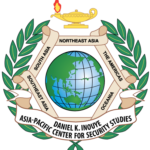Richard Siga-an (EC05-2)
The COVID-19 pandemic is testing the resilience of the Philippines and her resolve to cope. A common action is quarantine or community locked-down to prevent people from roaming around and spreading the virus. While lock–down is seen as closing the borders, it actually could be viewed as a unifying factor among political entities in inter-state or intra–state relationships.
The armed services were tapped to either lead or support the implementation of lock-down. There is an Inter–Agency Task Force (IATF), headed by the President and the Secretary of Health and the armed services are part of it.
At the moment, the Philippines immediate problem in the community lock–down is logistics and the President has delegated the power to source logistical requirements to local government units. The IATF is encouraging self-quarantine for those persons under investigation and monitoring of the possible COVID–19 cases. By this strategy, the possibility of overloading the medical care facilities and their manpower resources may be averted.
There appear to be some problems on the availability of testing kits. The medical practitioners here rely principally on a symptomatic diagnosis of COVID–19 cases, that is looking for common symptoms such as dry cough, shortness of breath, among others. There is an emphasis on strengthening individual resilience through public information.
The public transport system was suspended, but the movement of health workers, medicines and food supplies and other basic commodities are exempt. Selected workforces are allowed to report to work provided social distancing is observed and they have valid identification cards coupled with allowable bodily temperature reading at checkpoints.
So far, the Philippines case is manageable but there is a need to be vigilant.
Published: March 31, 2020
Category: Crisis Updates from the Region
Volume:
Author:





